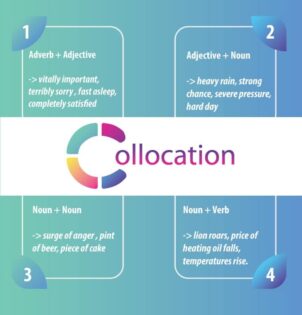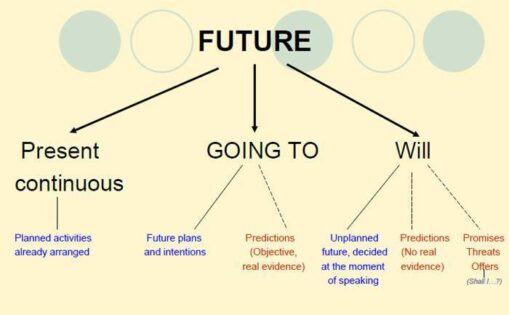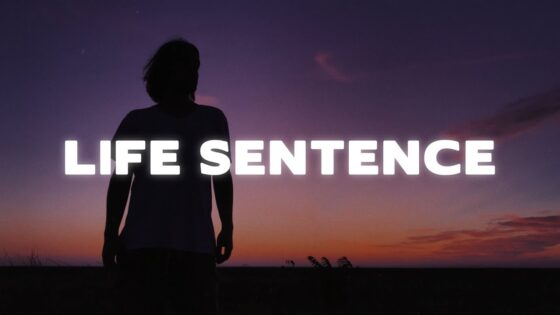Để nhận được tài liệu các bạn nhớ nhé:
– PHẢI GIẢI THÍCH ÍT NHẤT 5 ĐÁP ÁN, LIKE VÀ SHARE BÀI VIẾT NÀY
-LÀM BẰNG MÁY TÍNH THÌ COMMENT TRONG WEB
– LÀM BẮNG ĐIỆN THOẠI THÌ CHỤP ẢNH COMMENT Ở ĐÂY
Chọn đáp án đúng (có thể có nhiều đáp án đúng)
1. He was offered the job thanks to his __________ performance during his job interview. *
A. impressive
B. impressively
C. impression
D. impress
2. Someone who is _______ is hopeful about the future or the success of something in particular. *
A. pessimist
B. optimistic
C. optimist
D. pessimistic
3. The preparations ______ by the time the guests ___________ . *
A. have finished / arrived
B. have been finished / arrived
C. had been finished / arrived
D. had finished / arrived
4. As an ______ , Mr. Pike is very worried about the increasing of teenager crimes. *
A. educational
B. education
C. educator
D. educate
5. ___________ turned out to be true *
A. Everything she had told us which
B. Everything where she had told us
C. Everything she had told us
D. That everything she told us
6. You’d better get someone ______________ your living room. *
A. redecorated
B. to redecorate
C. redecorating
D. redecorate
7. Can you take __________ of the shop while Mr. Green is away? *
A. operation
B. charge
C. management
D. running
8. They held a party to congratulate their son ___________ his success to become an engineer *
A. in
B. on
C. with
D. for
9. They always kept on good _ ______ with their next-door neighbors for the children’s sake *
A. terms
B. relations
C. will
D. relationship
10. They had invited over one hundred guests, ________ *
A. not any of whom I knew
B. I did not know any of whom
C. I knew none of who
D. none of whom I knew
11. Please ______________ and see us when you have time. You are always welcome. *
A. come away
B. come to
C. come in
D. come round
12. Not only ______________ to determine the depth of the ocean floor, but it is also used to locate oil. *
A. seismology is used
B. is seismology used
C. using seismology
D. to use seismology
13. I did not have enough lexical knowledge to ________ that article from Vietnamese into English. *
A. translate
B. convert
C. transmit
D. change
14. He wanted to know _______. *
A. where he could change some money
B. where he can change some money
C. where could he change some money
D. where can he change some money
15. Mary didn’t remember what I ________ her the day before. *
A. have told
B. told
C. was telling
D. had told
16. He became interested in ________ when he started taking pictures for the local newspaper. *
A. photography
B. photograph
C. photographer
D. photographic
17. Body language ________ communication effectively. *
A. is known to enhance
B. has known to enhance
C. knew to have been enhanced
D. was known to be enhanced
18. _______ is increasing, which results from economic crisis. *
A. Employment
B. Unemployed
C. Unemployment
D. Employ
19. Tom: “_____” Mike: “I won’t say no!” *
A. How are things with you, Mike?
B. What about playing badminton this afternoon?
C. Mike, do you know where the scissors are?
D. What’s your favourite, tea or coffee?
20. In the US the first stage of compulsory education _______ as elementary education. *
A. to be generally known
B. is generally known
C. generally known
D. is generally knowing
21. It is vital to create a good impression ______ your interviewer. *
A. on
B. with
C. at
D. for
Mark the letter A, B, C, or D on your answer sheet to indicate the sentence that is closest in meaning to each of the following questions. (Question 22 -> 27)
Read the questions carefully, plzzz!
22. I would rather you wore something more formal to work. *
A. I’d prefer you wearing something more formal to work.
B. I’d prefer you to wear something more formal to work.
C. I’d prefer you should wear something more formal to work.
D. I’d prefer you wear something more formal to work.
23. Had we left any later, we would have missed the train. *
A. We didn’t miss the train because it left late.
B. We left too late to catch the train.
C. Because the train was late, we missed it.
D. We almost missed the train.
24. “Why can’t you do your work more carefully?” said Henry’s boss. *
A. Henry’s boss criticized him for doing his job carelessly.
B. Henry’s boss asked him not to do his job with care.
C. Henry’s boss suggested doing the job more carefully.
D. Henry’s boss warned him to to the job carefully.
25. “Leave my house now or I’ll call the police!” shouted the lady to the man. *
A. The lady said she would call the police if the man didn‟t leave her house.
B. The lady told the man that she would call the police he didn‟t leave her house.
C. The lady informed the man that she would call the police if he didn‟t leave her house.
D. The lady threatened to call the police if the man didn‟t leave her house.
26. He last has his eyes tested ten months ago. *
A. He had tested his eyes ten months before.
B. He didn’t have any test on his eyes ten months before.
C. He had not tested his eyes for ten months then.
D. He hasn’t had his eyes tested for ten months.
27. He survived the operation thanks to the skillful surgeon. *
A. He survived because he was a skillful surgeon.
B. He wouldn’t have survived the operation without the skillful surgeon.
C. There was no skillful surgeon, so he died.
D. Though the surgeon was skillful, he couldn’t survive the operation.
Read the following passage and mark the letter A, B, C, D on your answer sheet to indicate the correct answer to each of the questions from 28 to 36
Who talks more – men or women? Most people believe that women talk more. However, linguist Deborah Tannen, who has the studied the communication style of men and women, says that this is a stereotype. According to Tannen, women are more verbal – talk more – in private situations, where they use conversation as the “glue” to hold relationship together. But, she says, men talk more in public situations, where they use conversation to exchange information and gain status. Tannen points out that we can see these difference even in children. Little girls often play with one „best friend‟ and their play includes a lot of conversation. Little boys often play games in groups, their play usually involves more doing than talking. In school, girls are often better at verbal skills, while boys are often better at mathematics. A recent study at Emory University helps to shed light on the roots of this difference. Researchers studied conversation between children aged 3-6 and their parents. They found evidence that parents talk very differently to their sons than they do to their daughters. The “startling” conclusion was that parents use more language with their girls. Specifically, when parents talk with their daughters, they use more descriptive language and more details. There is also far more talk about emotions, especially with daughters than with sons.
28. Which sentence best expresses the main idea of the first paragraph? *
A. Women talk more than men on the whole
B. Women’s talking is a stereotype
C. Women talk more in private, and men talk more in public
D. Little boys and little girls have different ways of playing
29. Which word is similar in meaning to the word “glue”? *
A. games
B. sticky substance
C. rope
D. means
30. Which of the following phrases best explains the meaning of the word “verbal”? *
A. deriving from verbs
B. connected with use of spoken language
C. using very loud noise
D. being very talkative
(Reposting the above passage)
Who talks more – men or women? Most people believe that women talk more. However, linguist Deborah Tannen, who has the studied the communication style of men and women, says that this is a stereotype. According to Tannen, women are more verbal – talk more – in private situations, where they use conversation as the “glue” to hold relationship together. But, she says, men talk more in public situations, where they use conversation to exchange information and gain status. Tannen points out that we can see these difference even in children. Little girls often play with one “best friend‟ and their play includes a lot of conversation. Little boys often play games in groups, their play usually involves more doing than talking. In school, girls are often better at verbal skills, while boys are often better at mathematics. A recent study at Emory University helps to shed light on the roots of this difference. Researchers studied conversation between children aged 3-6 and their parents. They found evidence that parents talk very differently to their sons than they do to their daughters. The “startling” conclusion was that parents use more language with their girls. Specifically, when parents talk with their daughters, they use more descriptive language and more details. There is also far more talk about emotions, especially with daughters than with sons.
31. The word “they” refers to ______. *
A. situations
B. men
C. men and women
D. women
32. Which of the following can be inferred from the first paragraph? *
A. Men and women have different styles of talking, which may begin in childhood.
B. According to Deborah Tannen, the belief that women talk more is party right but most wrong.
C. Women talk more in some situations while men talk in others
D. Men are more sociable than women
33. Which sentence best expresses the main idea of the second paragraph? *
A. Researchers have studied the conversations of children and their parents.
B. Parents do not much about sadness with their sons
C. Study at Emory University can help to explain the differences between communication styles of boy and girls.
D. An Emory University study found than parent talk more with their daughters than with their sons.
(Reposting the above passage)
Who talks more – men or women? Most people believe that women talk more. However, linguist Deborah Tannen, who has the studied the communication style of men and women, says that this is a stereotype. According to Tannen, women are more verbal – talk more – in private situations, where they use conversation as the “glue” to hold relationship together. But, she says, men talk more in public situations, where they use conversation to exchange information and gain status. Tannen points out that we can see these difference even in children. Little girls often play with one “best friend‟ and their play includes a lot of conversation. Little boys often play games in groups, their play usually involves more doing than talking. In school, girls are often better at verbal skills, while boys are often better at mathematics. A recent study at Emory University helps to shed light on the roots of this difference. Researchers studied conversation between children aged 3-6 and their parents. They found evidence that parents talk very differently to their sons than they do to their daughters. The “startling” conclusion was that parents use more language with their girls. Specifically, when parents talk with their daughters, they use more descriptive language and more details. There is also far more talk about emotions, especially with daughters than with sons.
34. Which word can best replace the word “startling”? *
A. Beginning
B. annoying
C. surprising
D. interesting
35. Which of the following statement is TRUE about the passage? *
A. Parents give more love to their daughters than to their sons
B. Boys don’t like to be with their parents as much as girls do
C. Parents use more language to talk with their daughters
D. Boys don’t like showing emotions
Read the following passage and mark the letter A, B, C, D on your answer sheet to indicate the correct answer to each of the questions from 36 to 40.
Face-to-face conversation is a two-way process: You speak to me, I reply to you and so on. Two-way (36)_______ depends on having a coding system that is understood by both sender and(37)_______, and an agreed convention about signaling the beginning and end of the message. In speech, the coding system is the language like English or Spanish; the convention that one person speaks at a time may seem too obvious to mention. In fact, the signals (38)_______ in conversation and meetings are often (39)_______. For example, lowering the pitch of the voice may mean the end of a sentence, a sharp intake of breath may signal the desire to interrupt, catching the chairman’s eye may indicate the desire to speak in a formal setting like a debate, a clenched fist may indicate anger. When (40)_______ visual signals are not possible, more formal signals may be needed.
36. *
A. exchange
B. interchange
C. communication
D. correspondence
37. *
A. announcer
B. receiver
C. messenger
D. transmitter
38. *
A. that people use
B. are used
C. using
D. being used
(Reposting for the above passage)
Face-to-face conversation is a two-way process: You speak to me, I reply to you and so on. Two-way (36)_______ depends on having a coding system that is understood by both sender and(37)_______, and an agreed convention about signaling the beginning and end of the message. In speech, the coding system is the language like English or Spanish; the convention that one person speaks at a time may seem too obvious to mention. In fact, the signals (38)_______ in conversation and meetings are often (39)_______. For example, lowering the pitch of the voice may mean the end of a sentence, a sharp intake of breath may signal the desire to interrupt, catching the chairman’s eye may indicate the desire to speak in a formal setting like a debate, a clenched fist may indicate anger. When (40)_______ visual signals are not possible, more formal signals may be needed.
39. *
A. informal
B. non-verbal
C. verbal
D. formal
40. *
A. their
B. these
C. this
D. that
A
B
C
D
42 *
A
B
C
D
43 *
A
B
C
D
44 *
A
B
C
D
45 *
A
B
C
D
Mark the letter A, B, C, or D on your answer sheet to indicate the word whose underlined part differs from the other three in pronunciation in each of the following questions. (46 -> 52)










